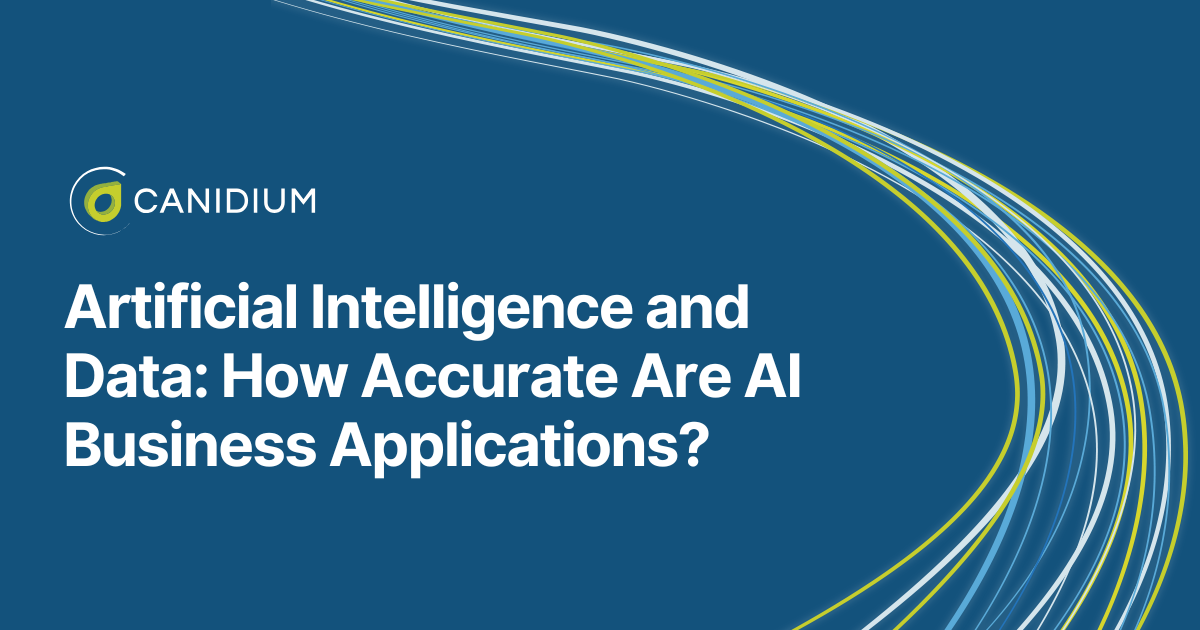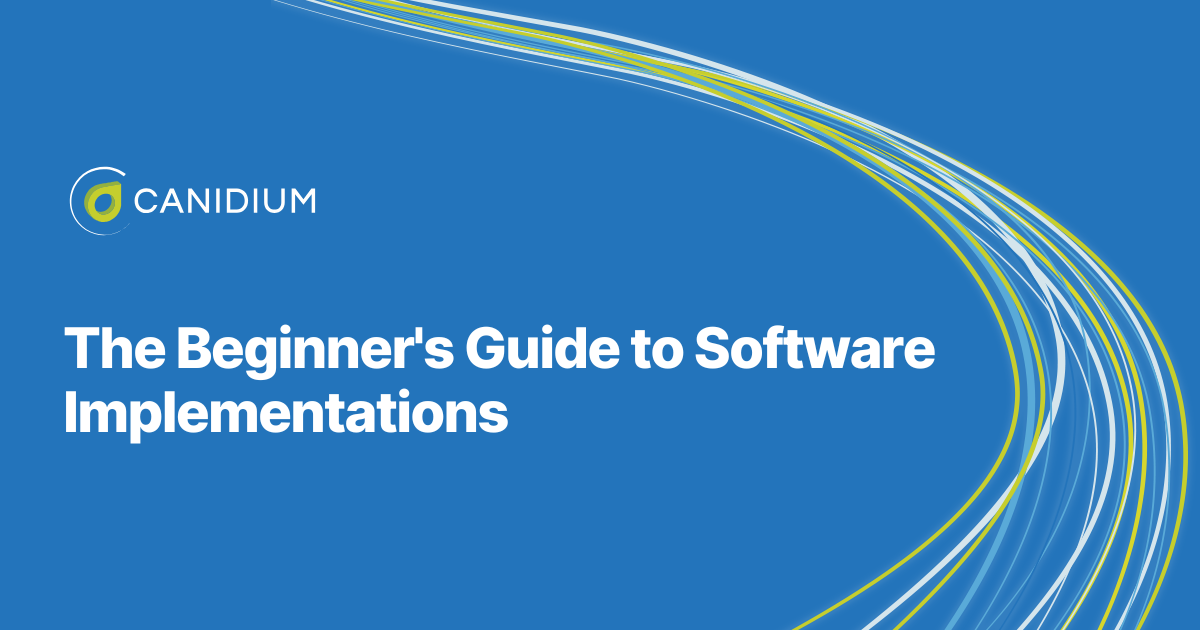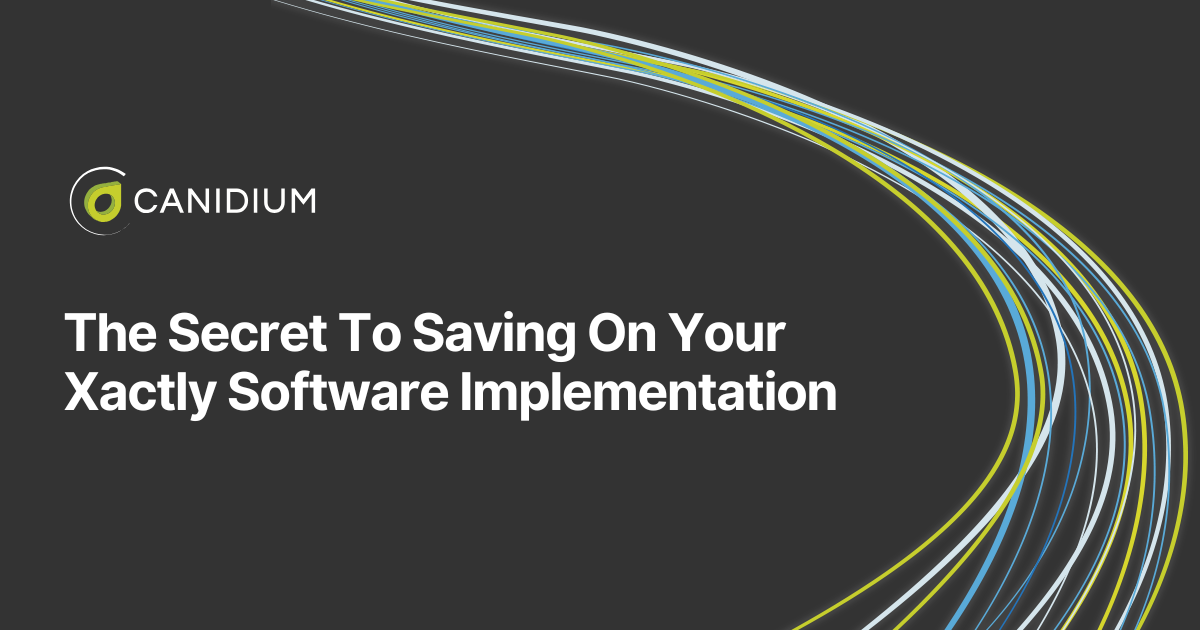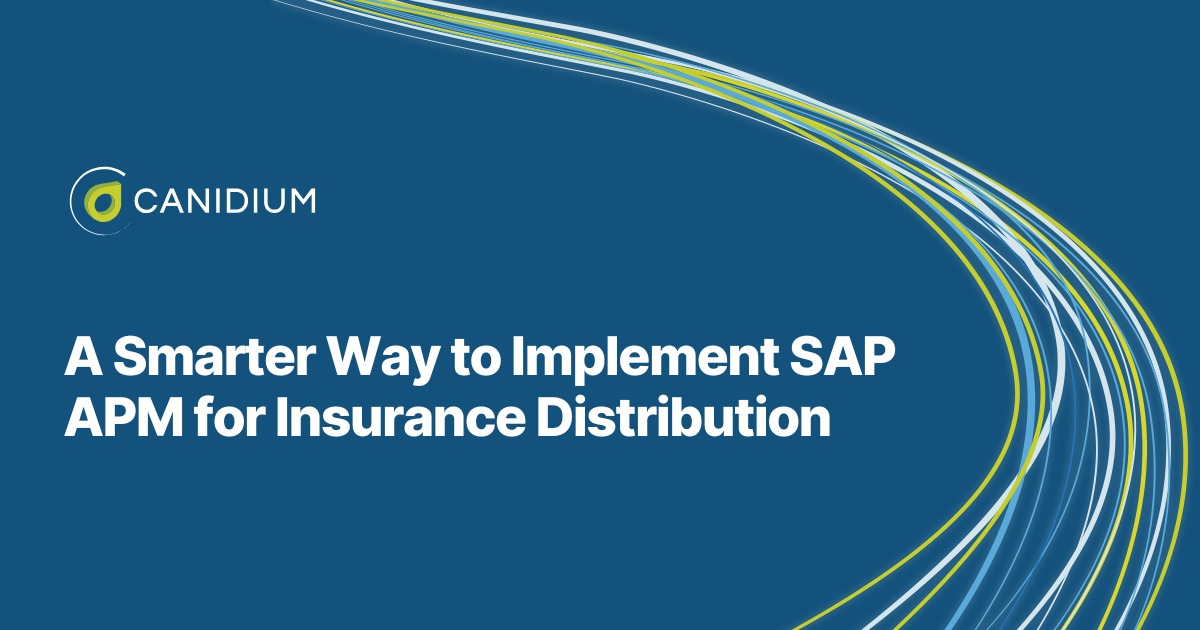Artificial intelligence is already well-established in most enterprises. Its potential to increase operational efficiency and production without overburdening employees is unparalleled. However, AI is still novel, and our understanding of the potential challenges it presents, as well as the potential solutions to these problems, is still evolving.
Our expert software implementation team is at the forefront of developing technology, helping organizations build out their infrastructure and features with new solutions. Our services give us unique insight into the potential and challenges of AI for business, allowing us to educate organizations on the following topics:
- How Accurate Is AI?
- Why Data Quality Matters for AI
- How to Improve AI Data Quality in a Business Setting
- How Tools Like Data Cloud Enhance AI
- How to Implement a Tool Like Data Cloud
How Accurate Is AI?
It Depends. Each AI model attains its own level of accuracy, so there is no singular figure to point to. The only overarching rule among all AI models is that none are 100% accurate. However, it is possible to reach a high level of AI accuracy by improving and maintaining the quality of the data the model runs on.
AIs must ingest a continuous feed of updated, consistent, and correct information; otherwise, their accuracy will diminish. For example, in March 2023, the popular LLM Chat GPT 4 correctly labeled prime numbers 97.6% of the time in a test of 500 numbers. Yet, just a few months later, in June, GPT-4 only succeeded 2.4% of the time.
This recent example is evidence of a growing issue for AI models. In fact, this decline in the accuracy of prevalent AI models has sparked a widespread discourse on AI "getting dumber." One of the prevailing theories on what's driving these diminishing results is that AI models are increasingly ingesting data created by other AI models in a cyclical spread of data inaccuracy. Although, regardless of where these large AI applications are sourcing low-quality information, it's evident that data quality is vital for AI accuracy.
Why Data Quality Matters for AI
The phrase "garbage in, garbage out" is particularly relevant in this conversation. AI models parse available data to answer inquiries, meaning that if the data sets it has access to are flawed, it will provide equally inaccurate answers. Moreover, beyond glaring errors, inaccuracies will manifest if data is incomplete, outdated, or inconsistent. Consequently, ensuring data quality is a critical prerequisite for organizations aspiring to adopt AI tools.
Poor data quality results in:
- Skew AI Predictions: Mismatched or incomplete data undermines the reliability of recommendations.
- Increase Operational Costs: If data quality is not ensured before the AI's implementation, time and resources will have to be spent cleaning and verifying data after implementation.
- Limit ROI: Without clean, unified data, businesses may not fully realize the benefits of their investment.
How to Improve AI Data Quality in a Business Setting
Large business software vendors are already providing solutions to AI data quality issues. For example, Salesforce's Data Cloud is a Customer Data Platform (CDP) designed to integrate data from multiple systems into a unified customer profile. It consolidates information from tools like HubSpot, Salesforce itself, and other external databases, providing a comprehensive and real-time view of each customer. This unified profile serves as the "source of truth," enabling more personalized and impactful interactions across touchpoints.
While not mandatory for every Salesforce AI application, Data Cloud is required for generative AI and predictive marketing models. Bringing siloed data together eliminates redundancies and equips AI solutions with the depth and breadth of information needed to produce accurate and actionable insights. Similarly, Adobe's Real-Time CDP and Snowflake offer similar solutions to Data Cloud.
Across the board, the most prominent business solutions have created the tools organizations need to improve the quality of their data. However, many businesses have yet to adopt them.
How Tools Like Data Cloud Enhance AI
Our expert software implementation team specializes in designing and configuring Salesforce. This gives us unique insight into the solution. So, to showcase how the novel features software vendors offer improve data quality, let's go over our experts' understanding of how Data Cloud works.
Salesforce Einstein AI products span sales, marketing, and customer service. Here's how Data Cloud enhances their capabilities:
- Personalized Marketing Campaigns: Marketing Cloud, powered by Einstein, leverages unified profiles to deliver hyper-targeted campaigns. For example, Data Cloud ensures that the most up-to-date customer email or preference is considered, increasing engagement rates and campaign effectiveness.
- Sales Insights: Tools like Einstein Opportunity Scoring can function without Data Cloud, but their accuracy and depth are amplified when connected to a unified dataset. Sales reps can prioritize leads more effectively and close deals faster.
- Real-Time Case Resolution in Service: Einstein's chatbots and service tools gain from real-time insights enabled by Data Cloud, reducing the time to resolve customer issues and improving satisfaction.
- Generative AI: For companies adopting Salesforce's generative AI capabilities, Data Cloud is a game-changer. It enriches models with diverse and comprehensive datasets, enabling more nuanced and sophisticated AI outputs.
How to Implement a Tool Like Data Cloud
Unless you already have internal resources with specific expertise in your chosen data quality solution, you should consider working with a software implementation partner who can leverage their nuanced understanding of the feature to seamlessly build the tool into your existing processes and technical infrastructure.
Once you have found your SI partner, they will help you through the following steps:
.png?width=1920&height=1080&name=05%20(1).png)
Conduct a Technical Health Check (THC) First
Before integrating Data Cloud or deploying AI, businesses should assess the quality of their existing data. A THC identifies gaps, inconsistencies, and redundancies, ensuring a clean and scalable foundation. It also provides valuable insights for both the client and the service provider, helping identify areas requiring improvement, ensuring scalability, and reducing risks associated with large-scale implementations.
Clean and Organize Data
Companies must clean their data before onboarding to Data Cloud. This includes deduplication, validating accuracy, and addressing missing values. Without this step, AI outcomes may be compromised. The findings of your THC will provide specific feedback to action during this step.
Work With Your Partner During Implementation
Your SI partner will handle the heavy lifting during your solution's implementation. However, to ensure that the bespoke design of your tool aligns exactly with your desired outcomes and mitigates your existing challenges, you will need to work closely to provide valuable information on your current systems and feature requirements, as well as the design of your new tool during the testing phase of the project.
Consider Managed Services
Just as the quality of large AIs notably declines without regular updates and maintenance, your solution will need consistent service. Post-implementation, if you lack a dedicated Salesforce admin, you should partner with a managed service provider. These external resources provide ongoing support, ensuring optimal use of Data Cloud and other Salesforce tools while minimizing internal personnel costs.
Improving Your Business AI Applications
The accuracy of AI business applications hinges on the quality of the data they process. While no AI model is flawless, their performance improves significantly when provided with clean, consistent, and comprehensive data.
Solutions like Salesforce Data Cloud demonstrate how unified data platforms enhance AI capabilities across sales, marketing, and customer service. By consolidating siloed data into a single source of truth, these tools empower AI to deliver personalized marketing, actionable sales insights, real-time customer service, and sophisticated generative outputs.
To learn more about Salesforce Data Cloud and Einstein AI products, read this guide.







